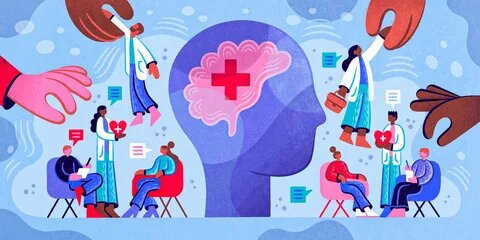


In current years, mental health has grow to be a relevant topic of discussion worldwide. With increasing cognizance about mental nicely-being, the call for for certified intellectual health experts has surged. Among those specialists, Licensed Professional Counselors (LPCs) play a pivotal function in addressing the diverse intellectual fitness needs of individuals throughout diverse settings.
An LPC is a mental health professional who has met specific educational, training, and licensure requirements to provide counseling services. They are equipped to assess, diagnose, and treat mental and emotional disorders, offering support to individuals, families, and groups.
To become an LPC, one typically needs to:
Earn a Bachelor's Degree: Often in psychology, sociology, or a related field.
Complete a Master's Degree in Counseling: This includes coursework in human development, counseling techniques, ethics, and more.
Accumulate Supervised Clinical Experience: Usually between 2,000 to 3,000 hours under a licensed supervisor.
Pass a National Licensing Examination: Such as the National Counselor Examination (NCE).
LPCs provide a number healing services, which includes:
Many LPCs specialize in areas such as:
Substance abuse counseling
Trauma and PTSD
Child and adolescent therapy
Career counseling
LPCs work in diverse environments:
Private practices
Hospitals and clinics
Schools and universities
Community mental health centers
Licensure serves as a benchmark for professional competence, ensuring that counselors have met standardized educational and ethical criteria. This protects clients by guaranteeing that they receive services from qualified individuals.
Licensed counselors are held to strict ethical standards and are subject to oversight by licensing boards. This accountability fosters trust and integrity within the counseling profession.
Licensed counselors often provide services that are more accessible and affordable compared to other mental health professionals, making mental health care more attainable for a broader population.
LPCs adopt a holistic approach, considering various aspects of a client's life, including emotional, social, and vocational factors, to provide comprehensive care.
By addressing issues early, LPCs play a crucial role in preventing the escalation of mental health problems, thereby reducing the long-term impact on individuals and society.
Despite growing awareness, stigma surrounding mental health persists, sometimes hindering individuals from seeking counseling services.
High caseloads and emotional demands can lead to burnout among counselors, emphasizing the need for self-care and institutional support.
Licensing requirements and scopes of practice can vary significantly between states, creating challenges for counselors moving across jurisdictions.
The rise of telehealth has expanded the reach of LPCs, allowing them to provide services to clients in remote or underserved areas.
LPCs increasingly collaborate with other healthcare professionals to offer integrated care, addressing both mental and physical health needs.
Licensed counselors are becoming more involved in advocacy efforts, influencing policies to improve mental health services and access.
Licensed Professional Counselors are essential in modern-day intellectual fitness landscape. Their complete schooling, moral standards, and dedication to consumer well-being function them as essential members to man or woman and network health. As mental health challenges keep to evolve, the role of LPCs will undoubtedly increase, reinforcing their importance in fostering a healthier society.
1. What is the difference between an LPC and a psychologist?
While both are mental health professionals, LPCs typically hold a master's degree and focus on counseling strategies, whereas psychologists often have a doctoral degree and may engage in psychological testing and research.
2. Can LPCs prescribe medication?
No, LPCs are not authorized to prescribe medication. They may, however, collaborate with psychiatrists or primary care physicians who can prescribe medications.
3. How long does it take to become an LPC?
Becoming an LPC usually requires a bachelor's degree (4 years), a master's degree in counseling (2-3 years), and supervised clinical experience (2-3 years), totaling approximately 8-10 years of education and training.
4. Are LPC services covered by insurance?
Many health insurance plans cover counseling services provided by LPCs. Coverage varies, so it's essential to check with individual insurance providers.
5. Can LPCs work independently?
Yes, once fully licensed, LPCs can operate independent practices, offering counseling services directly to clients.
fa-compass Life Coaching: Guidance through transitions and crises.
Goal Setting: Define desired outcomes. & Ongoing Therapy: Weekly or bi-weekly sessions for growth.
We typically submit claims within 24-48 hours of receiving complete documentation. This rapid turnaround helps accelerate your payment cycle and improve cash flow.
Our clients enjoy a first-pass acceptance rate of over 98%, significantly higher than the industry average. This high acceptance rate is achieved through our rigorous pre-submission verification process and coding expertise.
We manage primary, secondary, and tertiary insurance billing seamlessly. Our system tracks the status of each claim and automatically submits to subsequent carriers once payment or denial is received from the primary insurer.
Absolutely. Our team includes specialists familiar with the unique billing requirements of various medical specialties. We customize our approach based on your specialty's specific coding guidelines, documentation requirements, and payer rules.